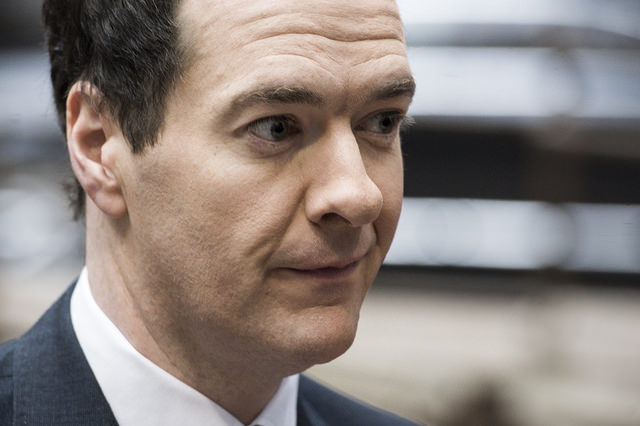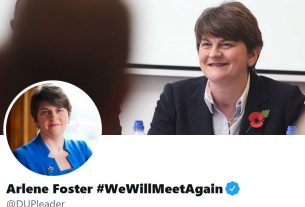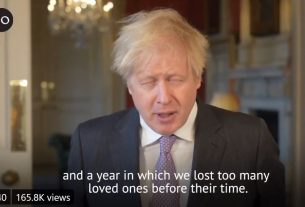A delay to the UK’s departure from the EU is the most likely next step instead of a game of ‘Russian roulette,’ the former Chancellor George Osborne said today.
Speaking at the World Economic Forum in Davos, Switzerland, The London Evening Standard editor said he believed the prospect of a hard Brexit was now fading.
Osborne told the BBC the UK faces a straight choice between no deal or no Brexit on the scheduled EU departure date of March 29.
He compared no deal to Russian roulette, saying it is ‘a game which you should never play because there’s a one-in-six chance the bullet goes into your head.’
Prime Minister Theresa May sacked Osborne – a key figure in the Remain campaign – as Chancellor when she took over as Conservative leader in 2016.
But Osborne says his replacement, Philip Hammond, has since told businesses that leaving without a deal was ‘not a possibility.’
He added: “But we now need to hear it from the British prime minister.”
There could now be a majority in Parliament to block a no deal Brexit, said Osborne, but it was unclear how MPs would achieve it.
Even after the resounding Commons defeat of her Brexit withdrawal deal last week, Prime Minister May insists it is the best option available.
Labour’s shadow chancellor John McDonnell appeared to back up Osborne’s prediction on BBC Newsnight yesterday.
He said it was ‘likely’ the party would support an amendment from Labour’s Yvette Cooper to make time for a bill to suspend the Article 50 process for leaving the EU.
If successful, the suspension would be triggered if Theresa May failed to agree a new deal with the EU by the end of next month.
McDonnell said: “I think it’s increasingly likely already that we’ll have to take that option because the government has run the clock down.”
Cooper’s plan is one of several due to be put forward by MPs from all sides when the Prime Minister reports back to the Commons on Tuesday.
They include a ‘Citizens’ Assembly’ to give the public a say and imposing an end date for the Irish border backstop which seeks to avoid a hard border on the island.
The backstop is the major sticking point among many opponents of May’s deal, including Tory Brexiteers and Northern Ireland’s Democratic Unionist Party (DUP).
They say it could lead to the UK becoming trapped indefinitely in a customs union with the EU and to the imposition of different rules for different parts of the UK.
Irish Taoiseach Leo Varadkar has said he would not give up the guarantee of a border backstop for ‘a promise that it will be all right on the night.’
The EU warned this week that a hard Brexit would make a hard border between Northern Ireland and the Republic inevitable.




